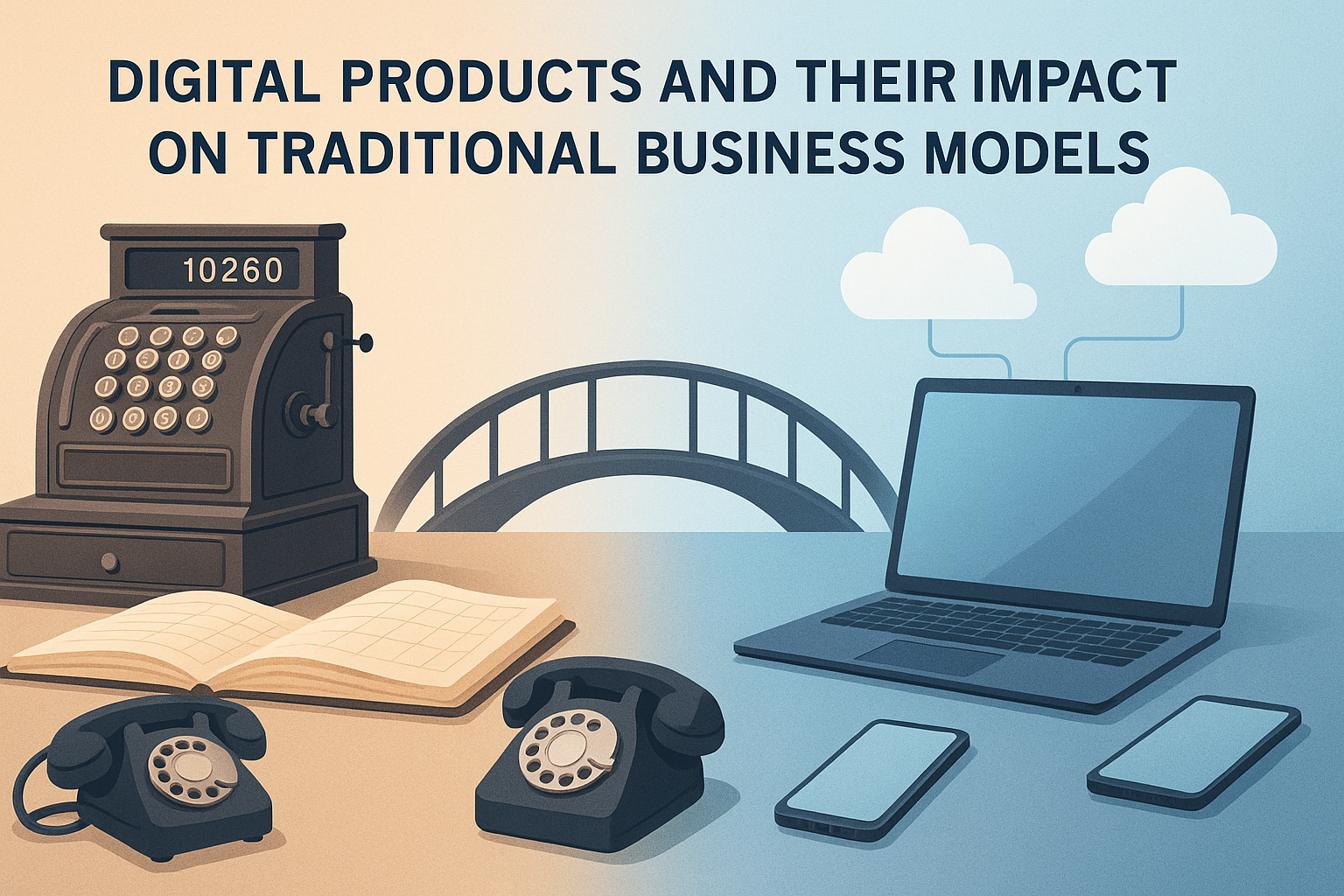Digital Products and Their Impact on Traditional Business Models
In today’s rapidly evolving digital landscape, traditional business models are being challenged and reshaped by the emergence of digital products. From ebooks to online courses, these products are transforming how businesses operate, engage with customers, and generate revenue. In this blog post, we’ll delve into the impact of digital products on traditional business models and explore how businesses can adapt to this new digital age.
Table of Contents
1. Introduction to Digital Products
2. The Transformation of Traditional Business Models
3. Advantages of Digital Products
4. Challenges Faced by Traditional Businesses
5. Strategies for Adapting to Digital Products
6. Conclusion
7. FAQs
Introduction to Digital Products
Digital products are non-physical goods that can be delivered electronically. Examples include software, music files, webinars, and mobile apps. Unlike physical products, digital goods can be produced, distributed, and consumed entirely in the digital realm. This shift from tangible to intangible has profound implications for businesses in various sectors.
The Transformation of Traditional Business Models
Traditional businesses have long relied on physical products and face-to-face interactions. However, the rise of digital products is reshaping these models. For instance, bookstores have expanded to sell ebooks, and universities offer online courses to reach global audiences. This transformation is driven by the need to meet consumer demands for convenience and instant access.
Advantages of Digital Products
Digital products offer numerous advantages over their physical counterparts. They are cost-effective to produce and distribute, allowing businesses to save on manufacturing and shipping costs. Additionally, digital products can reach a global audience instantaneously, opening new revenue streams and market opportunities. The scalability and flexibility of digital products also enable businesses to innovate and diversify their offerings more easily.
Challenges Faced by Traditional Businesses
Despite the benefits, transitioning to digital products presents challenges for traditional businesses. Resistance to change, lack of technical expertise, and concerns about data security are common hurdles. Furthermore, the competitive nature of the digital marketplace requires businesses to continuously innovate and differentiate themselves to stay relevant.
Strategies for Adapting to Digital Products
To thrive in the digital era, traditional businesses need to embrace change and adapt their strategies. Here are a few effective approaches:
1. Invest in Technology: Upgrading technology and infrastructure is crucial for facilitating digital product creation and distribution.
2. Upskill Employees: Training employees in digital skills helps bridge the knowledge gap and fosters a culture of innovation.
3. Collaborate with Digital Natives: Partnering with tech-savvy companies or hiring digital experts can provide valuable insights and accelerate the transition.
4. Focus on Customer Experience: Enhancing the digital customer journey through personalized experiences can improve engagement and loyalty.
5. Explore New Revenue Models: Subscription-based models, freemium services, and in-app purchases can offer sustainable income streams for digital products.
Conclusion
The impact of digital products on traditional business models is undeniable. While the transition may pose challenges, it also presents exciting opportunities for growth and innovation. By embracing digital transformation and adopting forward-thinking strategies, traditional businesses can not only survive but thrive in the digital age.
FAQs
Q1: What are digital products?
A: Digital products are intangible goods that can be delivered electronically, such as software, online courses, and ebooks.
Q2: How do digital products affect traditional businesses?
A: Digital products are transforming traditional business models by enabling cost-effective production, global reach, and new revenue opportunities.
Q3: What challenges do businesses face in transitioning to digital products?
A: Common challenges include resistance to change, lack of technical expertise, and increased competition in the digital marketplace.
Q4: How can businesses adapt to digital products?
A: Businesses can adapt by investing in technology, upskilling employees, collaborating with digital experts, focusing on customer experience, and exploring new revenue models.
Embracing digital products is not just an option but a necessity for businesses aiming to remain competitive in today’s digital world. By understanding the impact and implementing strategic changes, businesses can turn challenges into opportunities and pave the way for sustained success. 🌟
Free Download!
Best Digital Product – eBooks, templates, AI tools, courses, and mor






